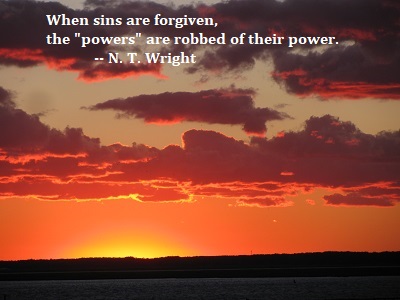The goal, over against the Platonizing distortions, is the fulfillment of the promise to Abraham to give the worldwide inheritance (see Rom. 4:13) to his entire single family. The problem is not the general problem of human sin or indeed of the death that it incurs. The problem is that God made promises not only to Abraham but through Abraham to the world, and if the promise-bearing people fall under the Deuteronomic curse, as Deuteronomy itself insists that they will, the promises cannot get out to the wider world. The means is then that Jesus, as Israel’s Messiah, bears Israel’s curse in order to undo the consequences of sin and “exile” and so to break the power of the “present evil age” once and for all. When sins are forgiven, the “powers” are robbed of their power. Once we understand how the biblical narrative actually works, so as to see the full force of saying that “the Messiah died for our sins in accordance with the Bible,” the admittedly complex passage can be seen to be fully coherent.
— N. T. Wright, The Day the Revolution Began, p. 241
[Photo: Sunset from Chincoteague, Virginia, October 22, 2016]
